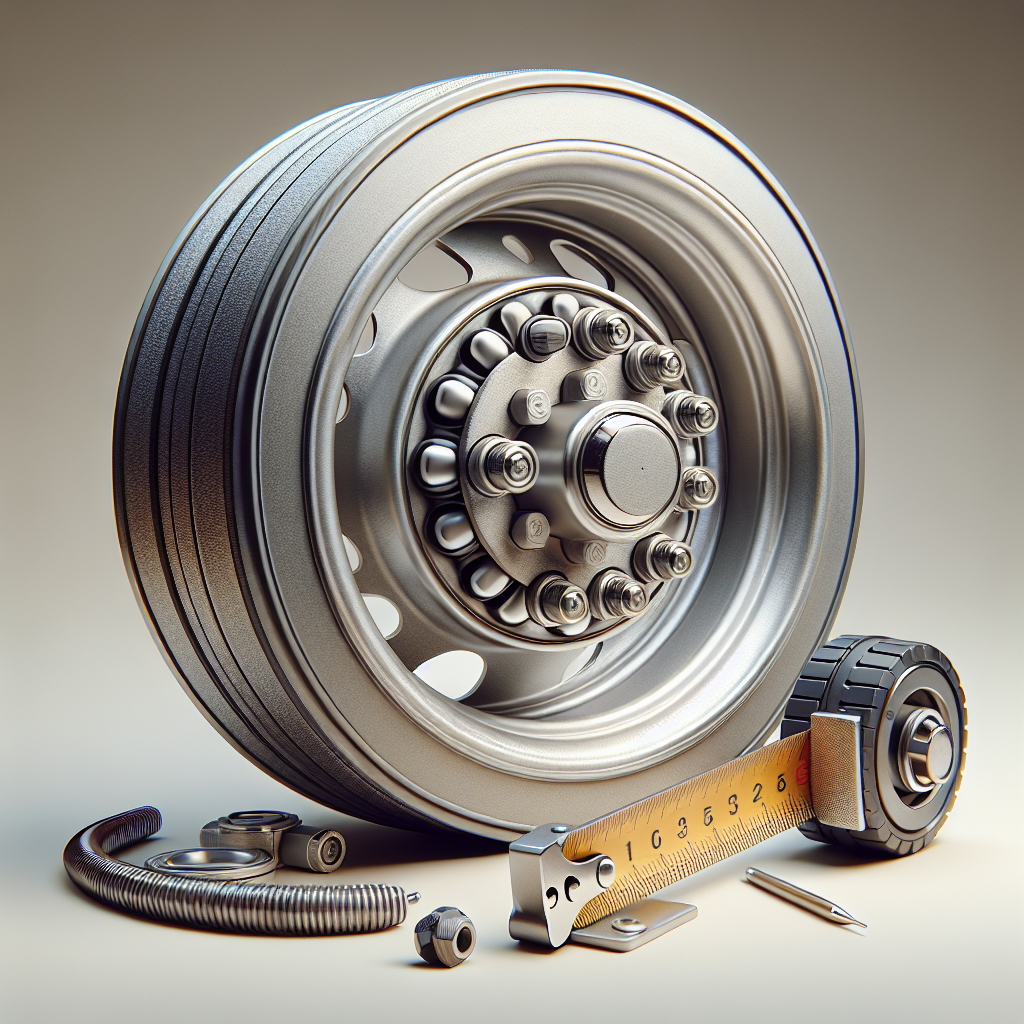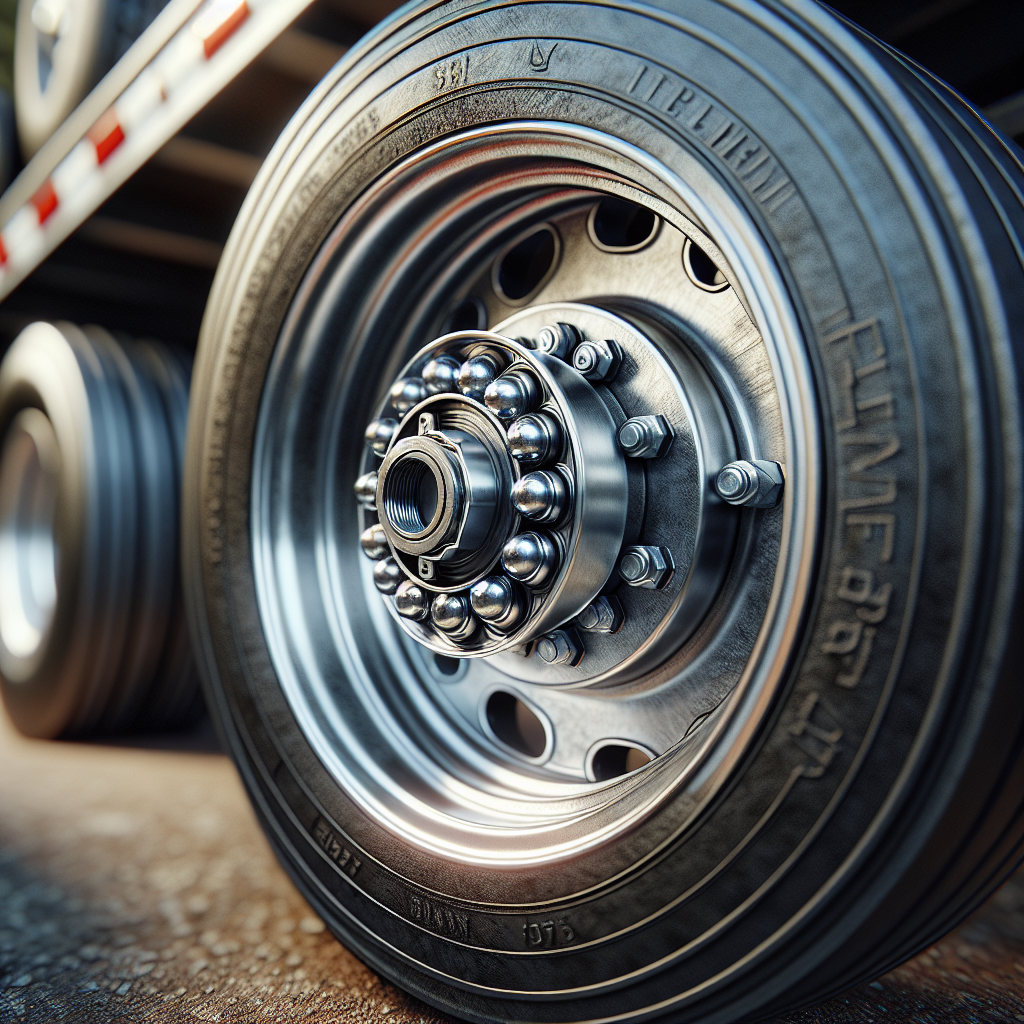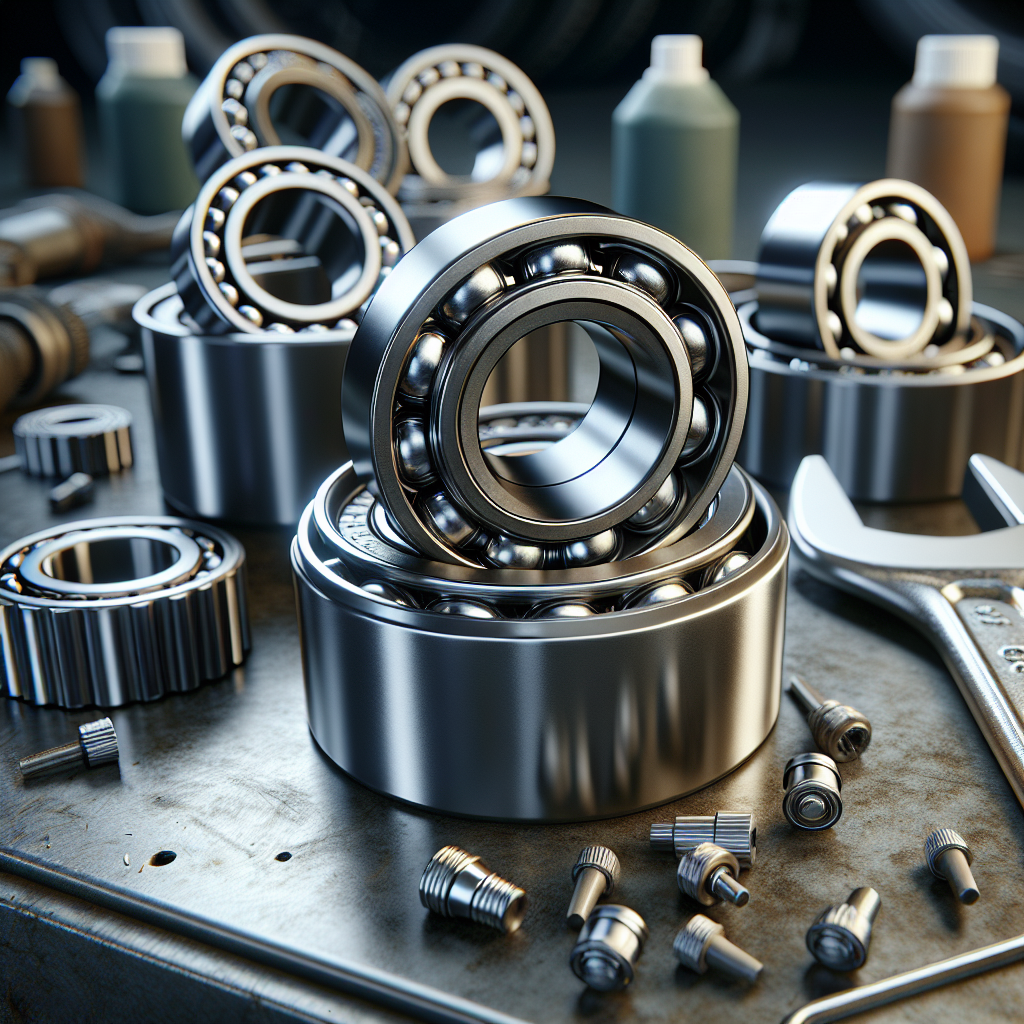

Maintaining your trailer's wheel bearings is crucial for ensuring safe and efficient towing. One important aspect of this maintenance involves understanding how much play in a trailer wheel bearing is acceptable. Wheel bearing play refers to the amount of movement or looseness in the bearings when the wheel is turned or rocked.
Typically, a slight amount of play is normal, but excessive movement can indicate wear and tear. Here are some key points to consider:
- Normal Play: A small amount of play, usually around 1/32 to 1/16 of an inch, is acceptable. This allows for proper lubrication and thermal expansion during operation.
- Excessive Play: If you notice more than a 1/16 of an inch of play, it may be a sign that the bearings are worn out or improperly adjusted. This can lead to further damage and potential failure.
- Signs of Wear: Look for unusual sounds, heat emanating from the wheel area, or visible wear on the bearing seals. These can all indicate that it's time for an inspection.
Regular checks of your trailer wheel bearings can prevent catastrophic failures and extend the life of your trailer. Tow with peace of mind, knowing that trailerwatchdog is standing guard.
Signs of Excessive Play in Wheel Bearings
Identifying excessive play in wheel bearings is essential for maintaining the safety and functionality of your trailer. Recognizing the signs early can save you from costly repairs and potential accidents. Here are some common indicators that your wheel bearings may have excessive play:
- Unusual Noises: A grinding, humming, or rumbling noise coming from the wheels can indicate that the bearings are worn out. This noise often increases as you accelerate.
- Heat Build-Up: If the wheels feel excessively hot to the touch during operation, it could suggest that the bearings are not functioning properly, leading to friction and overheating.
- Vibration or Shaking: A noticeable vibration while towing could signal that the wheel bearings are loose or failing. This can also affect the overall handling and stability of the trailer.
- Uneven Tire Wear: Inspect your tires for uneven wear patterns. If one side of the tire shows more wear than the other, it may be a sign that the wheel bearings are not properly supporting the wheel.
- Visual Inspection: Look for signs of grease leaking from the wheel hub. This could indicate a failure in the seal, allowing dirt and moisture to enter and cause damage to the bearings.
If you experience any of these symptoms, it's crucial to address the issue promptly to avoid further damage to your trailer and ensure safe towing.
Acceptable Limits of Play in Trailer Wheel Bearings

Understanding the acceptable limits of play in trailer wheel bearings is vital for maintaining optimal performance and safety. While some movement is normal, excessive play can lead to significant issues, including tire wear and potential failure. Here are key points to consider:
- Normal Play: Typically, a small amount of axial play (up and down movement) of around 0.005 to 0.010 inches is acceptable in most trailer wheel bearings. This slight movement allows for thermal expansion and keeps the wheel functioning smoothly.
- Measurement Techniques: To measure play, lift the trailer wheel off the ground and grasp it at the 12 and 6 o'clock positions. Any noticeable movement should be measured with a dial gauge. If the play exceeds the acceptable limits, it’s time to inspect and possibly replace the bearings.
- Impact of Over-tightening: It’s crucial not to overtighten the bearings, as this can lead to premature failure due to increased friction and heat. Always refer to the manufacturer's specifications for proper torque settings.
- Routine Maintenance: Regularly checking and adjusting the wheel bearings as part of your maintenance routine can help you stay within the acceptable limits and avoid issues down the road. This includes repacking the bearings with grease at recommended intervals.
Staying informed about these acceptable limits can help ensure that your trailer remains safe and reliable on the road.
Protect your trailer
Consequences of Ignoring Bearing Play

Neglecting bearing play in trailer wheels can lead to a variety of severe consequences that not only compromise the performance of the trailer but also pose safety risks. Understanding these consequences is crucial for any trailer owner. Here are the main issues that can arise:
- Excessive Wear: Ignoring excessive play can cause uneven wear on the tires, leading to a decrease in traction and an increase in the frequency of tire replacements. This not only adds to maintenance costs but can also affect the handling of the trailer.
- Heat Buildup: Increased bearing play can result in higher friction levels, which generates excessive heat. Over time, this heat can lead to the deterioration of the bearing grease, resulting in failure of the bearings and possible wheel lock-up.
- Potential for Catastrophic Failure: One of the most alarming consequences of ignoring bearing play is the risk of catastrophic failure. If a bearing fails while in motion, it can lead to a loss of control over the trailer, endangering the driver, passengers, and other road users.
- Increased Maintenance Costs: Failing to address bearing issues early can lead to more extensive damage requiring costly repairs. It is far more economical to conduct regular inspections and maintenance than to face the financial burden of major repairs.
By recognizing the severe consequences of ignoring bearing play, trailer owners can take proactive measures to maintain their equipment, ensuring both safety and performance on the road.
Maintenance Tips for Trailer Wheel Bearings

Proper maintenance of trailer wheel bearings is essential for ensuring optimal performance and longevity. Following a few simple yet effective maintenance tips can help you avoid costly repairs and prevent safety hazards:
- Regular Inspections: Schedule regular inspections of your trailer's wheel bearings to check for any signs of wear, play, or damage. Look for unusual noises, vibrations, or overheating during operation, which may indicate bearing issues.
- Lubrication: Ensure that the wheel bearings are properly lubricated with high-quality grease. Over time, grease can break down or wash out, so it's vital to replenish it regularly, especially after long trips or exposure to harsh conditions.
- Check for Play: Use a dial indicator or a simple manual method to check for any play in the bearings. If you notice excessive play, it's essential to adjust or replace the bearings promptly.
- Repack Bearings: Depending on usage, it's advisable to repack the bearings every 12 months or after a certain mileage. This involves removing the bearings, cleaning them, and applying fresh grease before reinstalling them.
- Monitor Temperature: Consider installing a monitoring system that tracks axle temperature and alerts you to any abnormalities. Elevated temperatures can indicate issues with the bearings and should be addressed immediately.
By adhering to these maintenance tips, trailer owners can significantly enhance the durability of their wheel bearings, ensuring safe and reliable towing for years to come.
When to Seek Professional Assistance

While routine maintenance and inspections are critical for trailer wheel bearings, there are times when it’s wise to seek professional assistance. Recognizing when to consult an expert can save you from potential hazards and costly repairs down the road. Here are some key indicators:
- Excessive Play: If you detect significant play in the wheel bearings during your checks, it’s essential to have a professional evaluate the situation. Excessive play can lead to further damage if not addressed promptly.
- Unusual Noises: Grinding, squeaking, or rumbling noises coming from the wheels can be a sign of bearing failure. If these sounds persist despite regular maintenance, it’s time to bring in a specialist.
- Overheating: If the wheel hub feels excessively hot to the touch after driving, this may indicate bearing failure. Professional mechanics can diagnose the issue and determine the necessary repairs or replacements.
- Vibration Issues: If you experience significant vibrations while towing, it could be a sign of a problem with the wheel bearings or other components. A professional inspection can help identify the source of the issue.
- Infrequent Maintenance: If you haven't performed regular maintenance or are unsure about the condition of your bearings, consulting a professional is a prudent choice to ensure safety and reliability.
Remember, when it comes to trailer safety, it's better to be proactive than reactive. Tow with peace of mind, knowing that TrailerWatchdog is standing guard. Visit us today to learn more about our trailer monitoring solutions!




